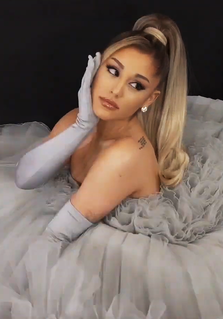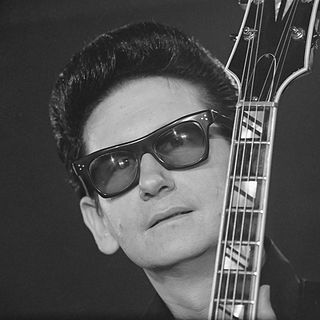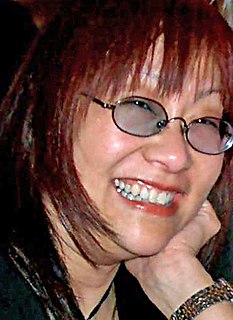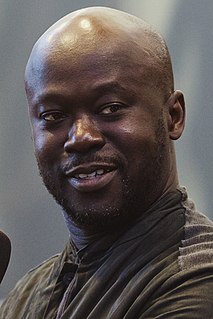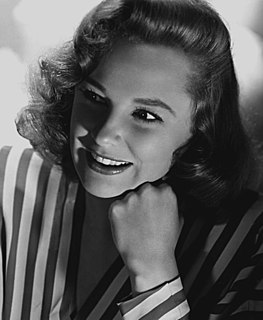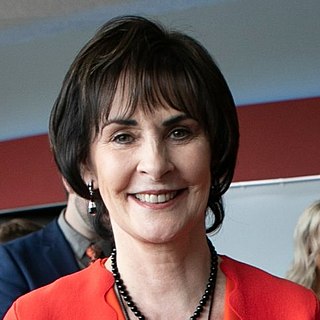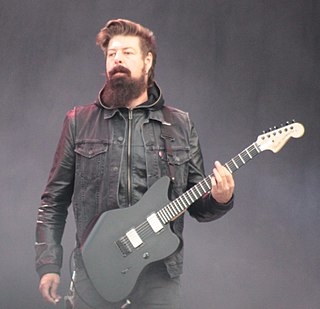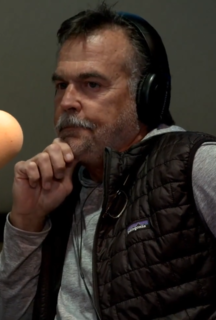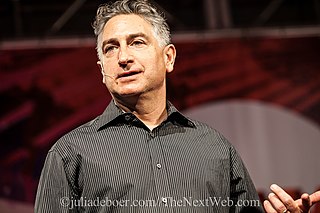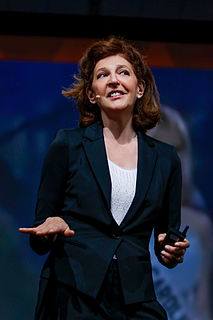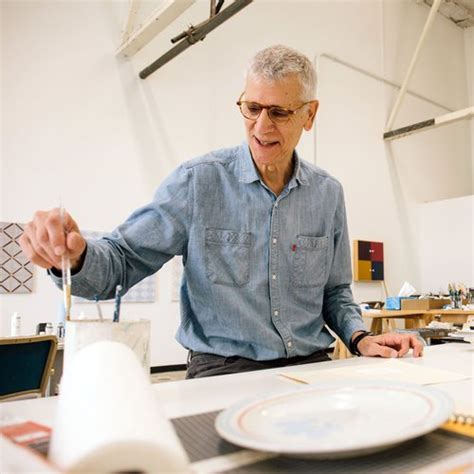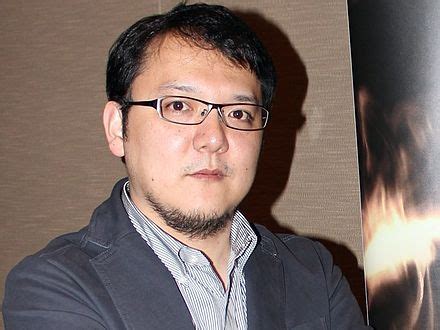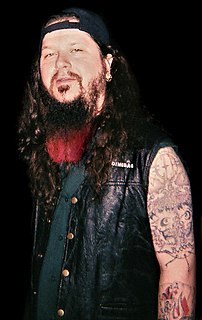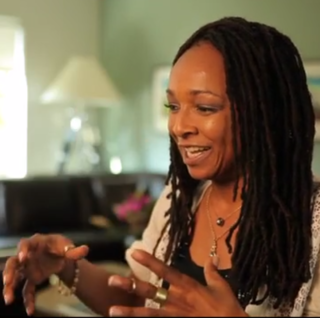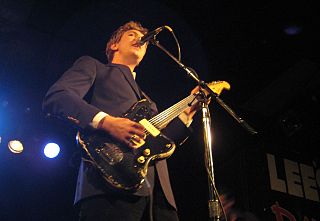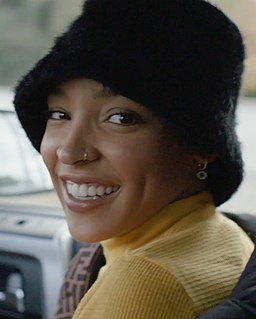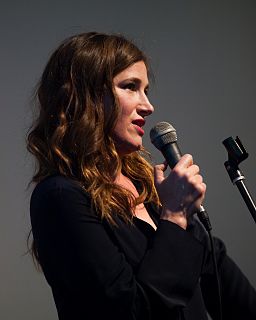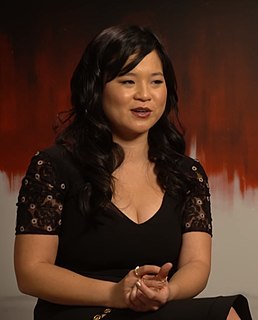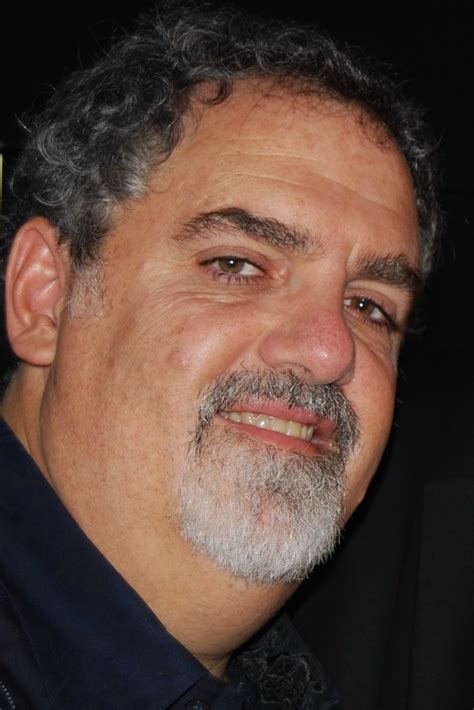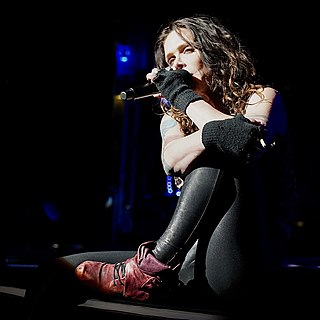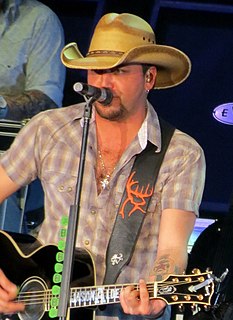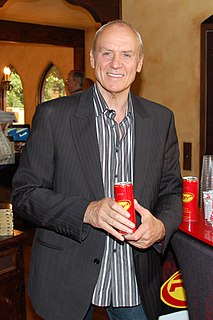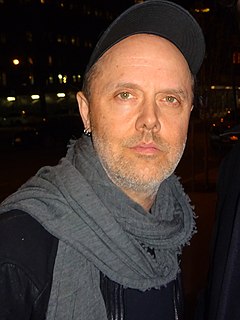Top 1200 Studio 54 Quotes & Sayings - Page 5
Explore popular Studio 54 quotes.
Last updated on December 5, 2024.
If technology and medicine are used by women to have children or not to have children or to have healthier children - that's one thing. But if it's used to say, 'You're not a real woman unless you have a child, therefore take all these dangerous hormones and have one at 54," then it's another story.
I was amazed at how the life of a freelancer differed from running a remote studio for another company. I thought I knew what I was doing in 2004 when I left Eidos because I had run Ion Storm Austin, which was my own independent studio. I had run a business unit inside Origin, but being part of a startup is crazy.
It never gets boring for me because there's so many different things to explore in the studio. The studio's become the sanctuary that people have come in and found new things out about themselves, as weird as that sounds. But it's true, I'm no different. I've made some crazy hard records, and I've made a jazz album.
'Southern Accents,' I think that's one of my best, really. That would have been 1984, and I wrote that on the piano in the studio at home. I had a studio, and I just happened to be down there in the middle of the night. It was quite late, probably early morning, and I just started to play, and a song just started to appear.
One day, we were going to the studio for John's recording session, and as we were leaving to get to the studio, in the elevator, all of a sudden, John leaned over and gave me a kiss. He said, 'I've been waiting to do this all day.' I said, 'What are you talking about?' What happened was, he'd liked me.
Charles Laughton, who's a great hero of mine, only ever made one film and it happens to be one of the great films ever, which is 'The Night of the Hunter.' It's full of his kind of imagination and creation and how you do things and just in the way he used the studio, I just thought it was a fantastical way of using the studio.
The museum in D.C. is really a narrative museum - the nature of a people and how you represent that story. Whereas the Studio Museum is really a contemporary art museum that happens to be about the diaspora and a particular body of contemporary artists ignored by the mainstream. The Studio Museum has championed that and brought into the mainstream. So the museums are like brothers, but different.
The only parental authority I had was the studio. When I was a star, there was always somebody with me, to guard me. I was not allowed to be photographed with a cigarette, a drink, a cup of coffee or even a glass of water because someone might think it was liquor. When I left the studio I was already married and had two children, but I felt as sad as a child leaving home for the first time.
At 10 o'clock in the morning I'd go right in the studio. It feels good to be there in the morning before the day starts to mess with you - I don't mean in a negative way, but before I'd speak to a lot of people or get into anything, I'd go in there and just see what I felt. A lot happens in the morning for me in the studio.
I have the barn, it's just kind of like a studio. Almost all artists have la studio to work in, and that's really what it is. A place to get away. I'll spend maybe four days out there if I can, just completely immersed - like where I don't bathe or brush my teeth for a few days, just get up and make coffee and experiment until the sun goes down.
In my opinion, I would still like to go into a studio - because I love the environment of being in a studio - and record a great album beginning to end, but then maybe not release it as an album. Maybe put singles out there, put songs out there - either give some away or release some the traditional way.
For me, between "Reference" and "Sketching & Conceptualizing" is the "Get the Hell Out of the Studio" step. I most often NEED to shut off the computer, push myself back from my desk and escape the studio space to let possible ideas percolate in my gray matter before committing anything to paper or digital imagery as a sketch or a concept.
At a certain point you have to make a decision in your life about where will you best serve, and I decided that I would best serve as a producer as opposed to a studio executive. There are many upsides to being the studio executive, but one of the downsides is that you get removed from the actual process of making the movie.
Everything has changed since I started recording in 1972. But the very things that have opened this industry, like the digital platforms to reach more people, have also killed things that were happening before in the recording studio. Now, most of the time, there are no real musicians in the studio; it's people with sequencers and things.
I had just finished reading The Day of the Locust when this piece was brought to my attention, and I was like, "How do you create art in the system, the way it is?" Looking around the studio film landscape, there are all of these great superhero movies, which is fantastic, especially for my kids, but it's hard to find real art house films in the studio system, these days.
If technology and medicine are used by women to have children or not to have children or to have healthier children - that's one thing. But if it's used to say, 'You're not a real woman unless you have a child; therefore, take all these dangerous hormones and have one at 54,' then it's another story.
My life as a painter influences my teaching and my duties as president of CCA - and I hope some of the experience of working at an exciting art school also spills over into my studio work. I believe most artists are adept at juggling multiple responsibilities - whether it's work, teaching, caring for family members or attending to relationships - with their studio commitment.
European films had art. And it was easy to make a European film. They didn't come from the studio system, they weren't shot in sound studios, and that's a good thing, because in the studio system those movies would never have had a chance. And since we were coming from Europe, it was natural for us to use that simple style. Small budgets, less equipment, that was just how it was.
The local dudes who knew that my dad owned a studio would say, 'Ahh, dude is spoiled,' and this and that. But we didn't abuse it at all. I'd always ask if we could use the studio first, and if our dad didn't want us there he would tell us, and that was that. But I definitely tried to get down there as often as I could.
I know I wasn't allowed to go to fashion school; I can't cut a dress like Galliano, right? But I had enough wherewithal to go to that studio on my first collection and bring Kim, [stylist] Christine Centenera, Ian Connor, Theophilus London, Virgil Abloh...they all came down to [Vetements/Balenciaga designer] Demna Gvasalia's studio that night and hung out.
'Beyond the Lights' took incredible fight to get made. Four years of writing and two years of overcoming 'no.' Every studio balked. Twice. But I kept fighting. What gave me the courage was 'Love & Basketball.' Every studio turned down that film, too. But I never gave up because I believed in it with my whole heart and soul.
We with Michael Jackson were in the studio recording some work on "Man in the Mirror" or the duet. I can't remember which it was. We did the duet in three languages: English, French and Spanish. So, I spent like a week with him in the studio doing the three songs in different languages. It was just an awesome experience recording with him.
I had no idea about where I was going. I had no sense of art as anything other than a problem to be fixed, you know, an itch to be scratched. I was in that studio trying my best to feel content with myself. I had, like, a stipend. I had a place to sleep. I had a studio to work in. I had nothing else to think about, you know. And that's - that was a huge luxury in New York City.
I would never go to a studio. I need my space, you know what I mean? I need to be able to chain smoke and pace about, cry and like... spit. Just make noise, make a huge mess. I also feel like if I was concerned for the cost of the studio - like, 'this is costing 40 dollars an hour' - I wouldn't be able to work.
The funny thing is that the studio that we recorded in was the same studio that Frank Sinatra and Bing Crosby and Nat King Cole used to warm up their voices in before they went across the street to CBS Radio. The owner has preserved it exactly the way it was in 1925. It was such a perfect coincidence that we were doing music inspired by that stuff in that room. It was incredible.
Just by default, because I don't have kids on my bus, I'm putting the studio on my bus. Where everybody else is doing their cribs on their bus, I'll have a little studio, so I'm going to invite my bandmates, on days off, to come and keep writing so we can continue the creative process and keep it going through the tour.
At first glance, The Color Run does look a lot like Holi. Its website is populated by photos of people throwing coloured powder at each other and in the air, outdoors, at the start of spring. The only difference, it seemed, was that there was a 5 km. run added in. And that it cost $54.99 to participate.
When I'm driving past the place I used to work, or when I'm driving past the comedy studio where I used to take photos in exchange for classes, or when I'm driving past the yoga studio I used to clean on the weekends - it's not that far removed from me yet. I get very sentimental over things like that.
I feel my fuller-bodied characters are all in the independent films I do, and in the studio productions, I have to work harder to dimensionalize the characters. And that's certainly part of the job description of an actor - that's what you're supposed to do - but you have to work harder at it in the characters that I've encountered in studio films.
One gets the impression that Elvis Presley does what his business advisors think will be most profitable. My advice to them: Put Elvis Presley in the studio with a bunch of good, contemporary rockers, lock the studio up, and tell him he can't come out until he's done made an album that rocks from beginning to end.
I didn't want my records to sound like anybody else, and when I've got my guys in the studio, I have a language with those guys because we work together every day. A lot of times, you bring in outside guys, studio players, whatever, and they're great musicians. It's just that they don't necessarily play the way I want it to be played.
I began working within the streets of Harlem, where, after graduating from Yale [University, New Haven, CT], I became the artist in residence at the Studio Museum in Harlem [New York, NY]. I wanted to know what that was about. I would actually pull people from off of the streets and ask them to come to my studio.
Back then, I was really into composing the entire solo, beginning to end. I wanted to have it at least 80 to 90 percent complete before going into the studio. I didn't improvise in the studio. I was young, and I didn't really have the development in my playing or the ability to show up with nothing and then put down 500 ideas. I can do that now because I'm so much more of a musician now.
